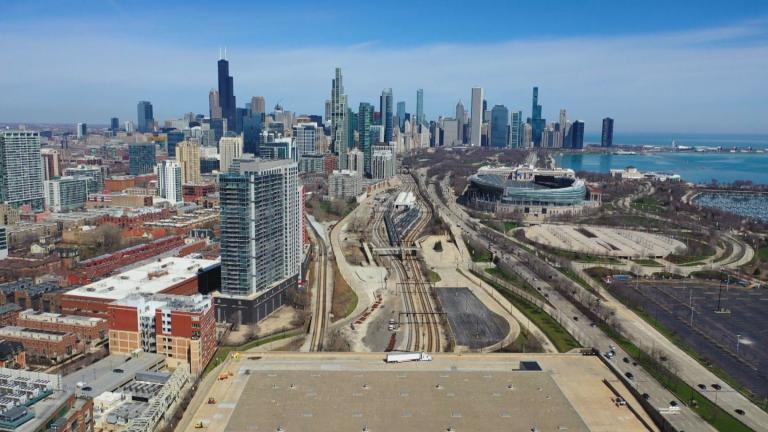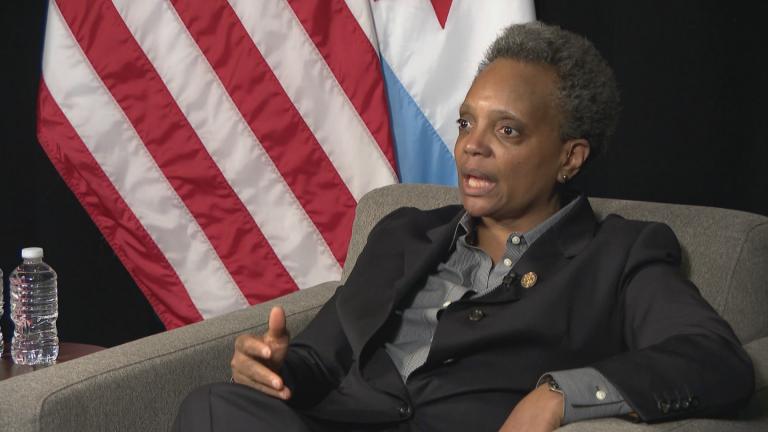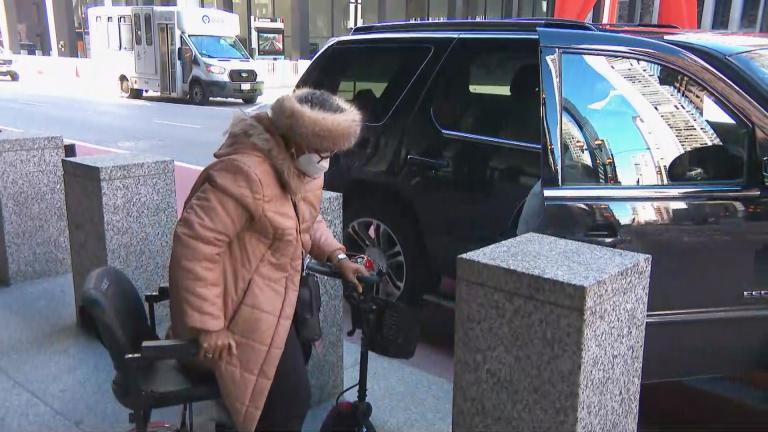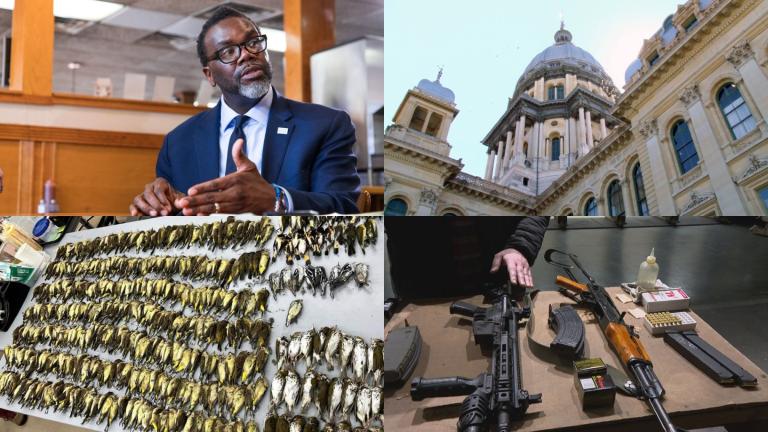Wednesday marks one year in office for Chicago’s mayor.
Lori Lightfoot began her tenure as a political outsider determined to uproot the old system of aldermanic control that’s led to numerous federal corruption cases. But that all changed two months ago. The remainder of her term will be defined by the COVID-19 crisis: how it was managed and how future decisions will shape the city’s emergence from it.
In the near term, the mayor must decide how and when to reopen the lakefront. Initially, Lightfoot said it would not reopen in phase three of the city's reopening plan, which, if current metrics hold steady, could begin at the end of May. But there has been a lot of pushback, including a Chicago Tribune editorial imploring the mayor to rethink that timeline.
More: Watch our full interview with Mayor Lori Lightfoot.
“We’ve got to do it in a way that keeps people safe, so that means a limitation on hours, certain kinds of activity,” Lightfoot said Tuesday during a one-on-one interview for “Chicago Tonight.” “I’m not going to put a time limit on it. Everything we do has to be dictated by where we are on meeting the various public health metrics that we set out. But there will be a time and a place this summer, I’m confident, where the lakefront will reopen.”
It was also hard to nail down specifics on some broader ideas Lightfoot has hinted at over the past week to close down streets and sidewalks and possibly allow outdoor dining. Lightfoot says she’s been working with the Illinois Restaurant Association on a plan, and that plan could include the limited reopening of more than just restaurants.
“We’re also looking at ways we can enjoy the cultural life of our city, music, theater, dance, all the things we look forward to in public spaces,” Lightfoot said. “I think there are ways following the example of other countries and other places in our country that we can do that, of course with limitations. I do think we can bring the vibrancy of our cultural life to life in the outdoors and do it safely.”
The mayor has recently taken a more sober tone when it comes to the city’s economic forecast. In the early days of the pandemic, Lightfoot appeared to downplay the threat of lost revenue, saying the city was in a position to weather the storm. But she admitted Tuesday that the impact is going to be significant. Ald. Anthony Beale (9th Ward) told WTTW News last week he anticipated the budget gap to be somewhere between $2-$3 billion. Lightfoot did not reveal a specific number, and said there might have to be onetime revenue sources to fix it.
“The shutdown of the economy has had a significant impact on city revenues, not just for 2021, but for 2020,” Lightfoot said. “So our budget team has been working diligently to assess the impact, and make some predictions about where we are going to be on a two-month, six-month basis, and lots of different scenarios based on how quickly we open up and how quickly the economy recovers.”
Beyond the pandemic, Lightfoot’s tenure has been defined by a sometimes chilly dynamic with the City Council. At her inauguration a year ago, she almost tauntingly looked back at aldermen seated behind her on stage, sending the message that the days of aldermanic prerogative and pay-to-play were over.
Many aldermen say the mayor’s treatment has rubbed them the wrong way. They say they see a mayor who hasn’t listened to them and has been antagonistic. But Lightfoot says she is confident in her relationship with the City Council.
“Am I going to please the people who are beholden to other special interests? No. Am I going to please those who want to maintain the status quo? Probably not. But if you look at the votes, we’ve got a majority that agrees with us,” she said.
But a recent vote to grant Lightfoot more executive authority to allocate and spend money during the pandemic passed by a 29-21 margin, razor thin considering the history of City Council votes over the last 30 years.
Prior to that, alderman rejected a move to delay the city’s ordinance to license and regulate the city’s recreational marijuana industry by a 29-19 margin, giving Lightfoot a win only after furious back-door negotiating and an effort by City Council’s Black Caucus to point to the lack of minority participation in the first stages of the program.
Lightfoot says she’s not worried that those votes may foreshadow stormy waters ahead when aldermen have to come together to vote on what could be the most difficult budget vote of their careers.
“I only need 26, and that’s what I manage towards. I don’t buy votes, I don’t bully people. I try to persuade them on what is in the best interest of all Chicagoans,” Lightfoot said.
Before the pandemic, Lightfoot’s biggest decision was the hiring of former Dallas Police Chief David Brown to be Chicago’s police superintendent, taking over for former LA Police Chief Charlie Beck, who held the post in the interim after Eddie Johnson was fired amid a scandal.
Follow Paris Schutz on Twitter: @paschutz
Watch our full interview with the mayor:








